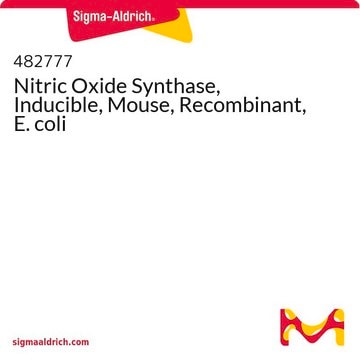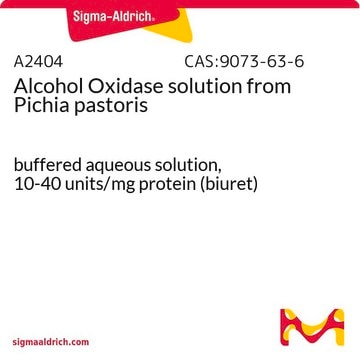N2783
Nitric Oxide Synthase, Inducible from mouse
recombinant, expressed in E. coli, buffered aqueous solution
Synonym(s):
Inducible Nitric Oxide Synthase, NOS II, iNOS, macNOS
About This Item
Recommended Products
recombinant
expressed in E. coli
Quality Level
form
buffered aqueous solution
specific activity
≥4.0 units/mg protein
mol wt
130 kDa (homodimer)
130 kDa (subunit, homodimer)
UniProt accession no.
shipped in
dry ice
storage temp.
−70°C
Gene Information
mouse ... Nos2(18126)
Looking for similar products? Visit Product Comparison Guide
General description
Application
Biochem/physiol Actions
Unit Definition
Physical form
Storage Class Code
10 - Combustible liquids
WGK
WGK 3
Flash Point(F)
Not applicable
Flash Point(C)
Not applicable
Certificates of Analysis (COA)
Search for Certificates of Analysis (COA) by entering the products Lot/Batch Number. Lot and Batch Numbers can be found on a product’s label following the words ‘Lot’ or ‘Batch’.
Already Own This Product?
Find documentation for the products that you have recently purchased in the Document Library.
early lactation in water buffalo dams
Our team of scientists has experience in all areas of research including Life Science, Material Science, Chemical Synthesis, Chromatography, Analytical and many others.
Contact Technical Service






